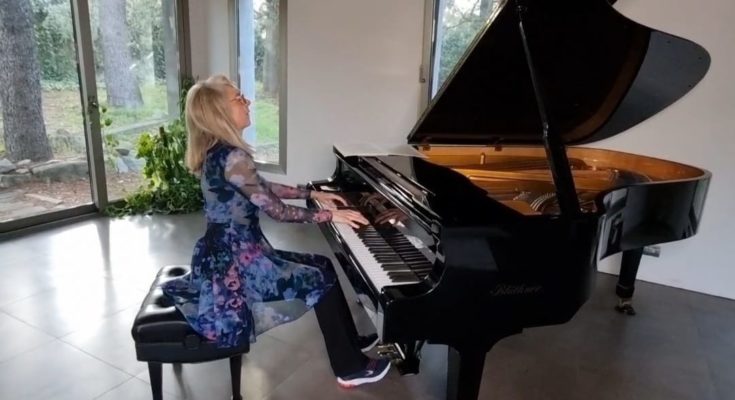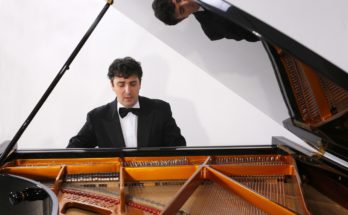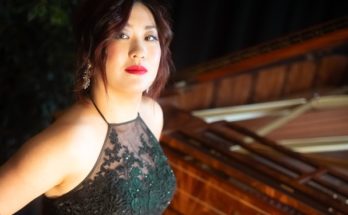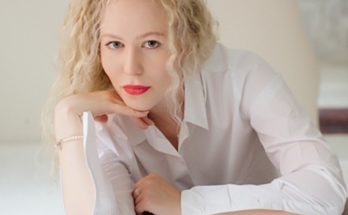This time PianoMe caught up with Inmaculada to talk about why she became a pianist and also about her experience of music teaching. We also spoke about her current initiatives and upcoming projects and she told us why she likes PianoMe’s idea.
PianoMe (PM): Dear Inmaculada, thank you very much for your time! It is a great pleasure for us that you are ready for an interview with PianoMe!
Inmaculada Villarrubia (IV): Thank you PianoMe, the pleasure is mine! It’s great to be here with you and your readers today.
PM: That’s great, thank you! First of all, we would like to briefly introduce you to our readers, even though many of them probably already know who you are. You are a very experienced pianist, who has developed her own style of playing. You have given numerous solo recitals across Spain, performing in prestigious venues such as the National Auditorium of Music and the Juan March Foundation in Madrid. As a soloist you have appeared with ensembles and also vocalists in the USA and also European countries. As a researcher and teacher, you are regularly invited to give lectures, workshops and masterclasses at educational centers. Can you please tell us first how you started getting into music, and as well, how you started playing piano, and what that’s been like for you?
IV: Well, thank you very much for this question, it really brings many memories, you see I remember listening to music from an early age and singing and dancing along…I remember my dad and mum used to have an extensive music collection: Beethoven, Bach, Karajan conducting, the Beatles, Mozart, Springsteen, or Supertramp among others, were played consistently on our home record-player.
And as for my piano beginnings… My granny was walking around Opera, a neighborhood in Madrid, where the former house of the Royal Conservatory of Music used to be located. Nowadays the building in this area is the Opera House…
Well, as I was saying, my grandmother was walking around when she suddenly noticed a line of people close to the doors of the Conservatory, and she just asked what was that all about. Someone in the queue told her that they were waiting to apply for the Conservatory of music, so she decided to stay for many hours in a row during the late evening and night so that my sister and I could get the chance to be admitted. Then it was said and done, and I began my music studies at the age of eight… my feelings were really good, I felt excited about learning a new discipline. I was eager to learn music, which I found somewhat similar to learning a new language. Also, my mother had already made it clear that the arts, scenic or visual, were important in life, and before my grandma bumped into that queue at the Conservatory, my mum had got me going to painting lessons and classical dance and Spanish dance lessons…but there you have it, granny is to blame! (laughs)
PM: And who have been the most important influences on your musical life and career so far?
IV: I’ve had many of them, the great thing about music is that you get in touch with many people, very different from each other, and in many cases with a great baggage of knowledge and experiences to nurture your hunger for learning. Also you learn all the time while you play professionally or for the sake of it with other colleagues and musicians from different musical backgrounds. It truly is a path of growth, and the truth is that with music there’s never an end to it, you never stop learning! So you never get bored… I guess that pianists like Nino Keredselize and Martha Argerich, María Joao Pires and Andras Schiff, but also pedagogues like Rita Wagner, Ferenc Rados, Carmen Aguirre, Sandro Kandelaki and Patrín García-Barredo have been of huge importance to me, both in my artistic performances and as a teacher.
I also happen to admire many musicians and composers from every musical genre: jazz, pop, ethnic, classical…and as a big influence and someone I truly admire, I would say Leonard Bernstein was a genius and also a heck of a music communicator.
PM: Very interesting! From your years of teaching piano, what is the main difficulty students have while learning the piano? How do you help them to overcome it?
IV: Well, that’s kind of tricky to answer, since it depends on every student…but there’s one difficulty I would say I encounter quite often with beginners, and also with students who come from a self-taught approach; there’s a sense of lack of patience and an eagerness to play the pieces or songs they wish as soon as possible, even if the level of that particular piece is far beyond theirs. This can be approached with some facilitated musical arrangements and also making a deal with the students, so that they get to prepare the pieces they wish in combination with other pieces that I find are more suitable to their current level. That is crucial in order to be successful in their performance requirements, as well as preparing them technically and musically to achieve the next steps in the ladder of piano learning.
Also, I have seen that some students have somewhat of a reluctance to learn the basics, or who don’t concentrate enough to pay attention to details…I really do believe they are so anxious about playing that this, in the end, becomes an obstacle to overcome. I’ve found that playing in public as soon as they have a piece in reasonably good shape, helps a lot with this scenic anxiety, and at the same time gives them a purpose beyond just playing for themselves. This aspect of a shared experience and the communication of musical expressiveness and of their own feelings that takes place, mixed with the good job done while preparing the piece and showing it all to an audience, really gives them a great reward and a boost of good vibes to continue with the practice.
And finally, another problem I would like to state here is the lack of time for piano practice. Some students don’t dedicate enough time to practice piano, this is quite common, both in children and adults. Implementing a thorough and thoughtful plan for the practice time they can commit to, organized in well-defined areas like pieces, sightreading, improvisation, theoretical and technical issues, can be strategic and very important for motivation and performative achievement.
PM: As an experienced piano teacher, what would you consider the three most important traits of a good piano teacher?
IV: Number 1, without a trace of a doubt, would be patience, no patience equals no good teacher, in my humble opinion. Number 2- huge communication skills and or empathy to put yourself in your students’ shoes and know what practical examples and words to use with each student to transmit what you mean, and from there you can clearly see the connection with a personalized pedagogical plan, since there are no two people alike. That would imply to respect your students‘ rhythm and motivate them, and make the most of every student’s skills. Number 3 would be being able to play excerpts of their pieces. I find it crucially important that the students can listen to what you want them to do on the piano, and see you play when you try to attain a particular performative or technical goal with them. Sometimes the student needs that model, to imitate what they hear and what they see…
PM: And what do you expect from your students?
IV: Commitment.
PM: What are your views on competitions? Can they be considered as a career booster?
IV: Hmmm, again a tricky one…I think competitions are good for achieving goals of capacity and challenging the person. It gives you a sense of accomplishment and toughness and resilience that can be positive for some people. On the contrary, for others it might turn out to be an unnecessary over-exposure that can create psychological wounds that might be hard to heal. We must bear in mind that juries and judgment are also quite typical in the professional, performative, and academic environments, so competitions can also bring advantages in that they develop a training ground for orchestra auditions, teaching positions, performance opportunities, etc.
Of course, competitions can also become career boosters, since they usually bring very good opportunities to perform in great venues and get to be known, and, therefore, after the competition has concluded, especially if you get to be in the first positions, acknowledgement and recognition by the musical institutions and authorities, and also making connections with management figures in the sector.
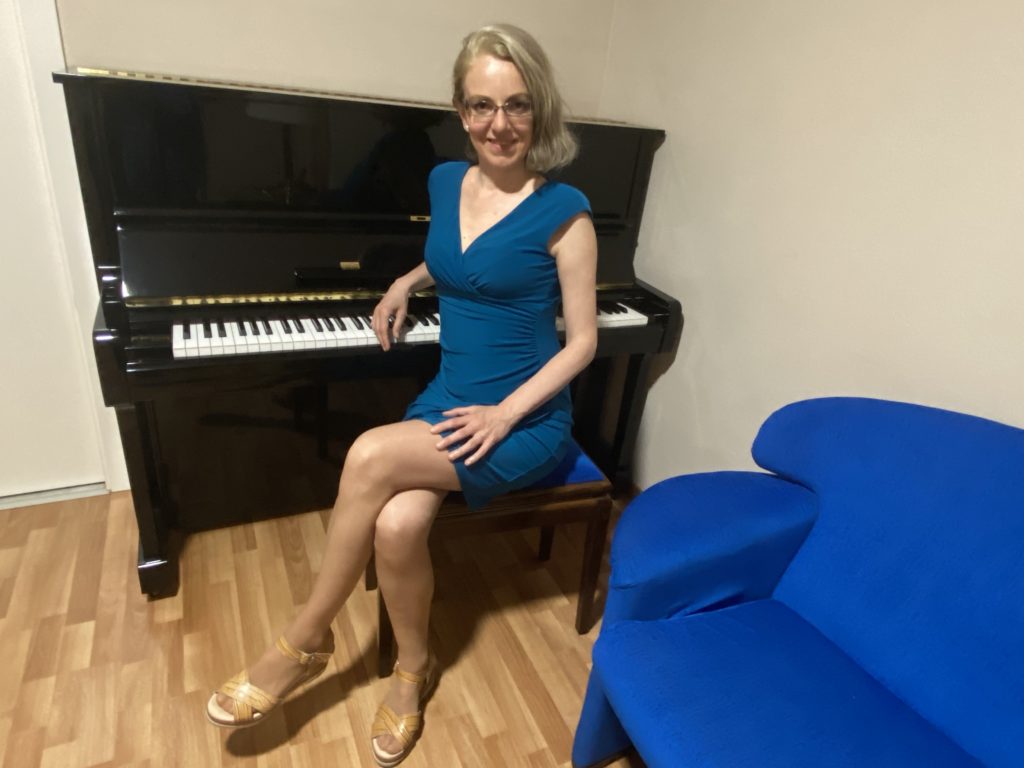
PM: And what are your thoughts on the link between performance and teaching?
IV: I think when a teacher performs she makes sense, I mean, of course you can be a teacher and not perform, but how come a performance area of learning can be dissociated from performance itself? It makes little sense to me… even if it’s only in the piano classroom, for me there’s no doubt the teacher of piano should play sometimes when giving directions to the student, so that she can understand her; furthermore, it’s more fun for teacher and student alike, if I might say that, even with students that prefer to play all the lesson through, without being taken away from their bench if there’s only one piano in the classroom… Sure enough, there are amazing teachers who are sages and have retired from playing in the concert halls, but they’ve been playing all their lives. Pianist and teacher is the right formula almost always, in my humble opinion. And even more so when the level of the student is advanced and beyond. It’s important that the teacher keeps on practicing and performing and that she’s able to consistently play excerpts and pieces which are highly demanding for the student.
PM: Interesting! With your performances, you are making the art of piano performance highly interactive. How does the aspect of interactivity, in your opinion, affect the audience’s perception of music?
IV: When the music experience goes from passively listening to whatever they might give you as a menu in a music repertoire played at a concert, to actively engaging through anecdotes, listening actively via messages or suggestions given, or any form of game, creative thought, narrative stories, active music or rhythm making or a mix of some of the aforementioned, you really can be sure that music will make a much more profound and lasting experience in the people involved. They become part of the performance, isn’t that great?
PM: What’s the one thing we’re not talking about in the piano teaching world which you really think we should be?
IV: I think making it a joyful experience, learning while enjoying is key! Also, relaxation and creativity make playing piano a wonderful way of dealing with life’s stressors while having fun, and together with discipline, learning piano can become an instrument for life, it gives you commitment, focus, and joy. To be able to cultivate those qualities makes life better, gives a sense of purpose and fulfillment. Music has a therapeutic aspect to it and many students are really looking for that.
PM: Thank you. Let us speak about your other activities. I know that you are playing harpsichord. How did you come to play the harpsichord?
IV: I wanted to play baroque pieces by Bach, Haendel, Couperin, Rameau, Fischer, etc., in an instrument that would be more suitable to them, and one of the instruments on which those pieces were actually played back then. I was also curious about playing the recitatives of operas in the harpsichord and getting to learn the subtleties of basso continuo or figured bass. Moreover, I happened to enjoy the timbre quality of the instrument and the touch while playing, which is much subtler and lighter than that required for playing the piano. Technique is also different, and you get to use mainly your fingers as opposed to the piano which requires more involvement of the weight of the arm.
PM: Can you compare the harpsichord and the piano for their expressive qualities?
IV: They are very different instruments. The piano is a very powerful instrument, where you can explore symphonic textures and cantabile, all surrounded by the very soul of the piano, the pedal, as Joseph Banowetz put it in his bestseller book.
Whereas with the harpsichord you have this distinguished and elegant tone which comes from a plucked string, the expressive articulations and ornaments, and the power of a wonderful and balanced sonority while playing with an ancient music ensemble. And it gives reality to Baroque and ancient pieces, which get to be played in their original instrument rather than the big and loud piano which was yet to come, even if Bach got to know one early version of it. He didn’t really care much for it, by the way…
PM: How did it come that you were awarded the Extraordinary Prize in 2022 for your research project ‚Funky Time: Improvisation as a Process and Liberation of the Score in Piano Ensemble Students’?
IV: I guess they found it to be somewhat interesting! (laughing)
What was proposed with that Master’s thesis was a project of pedagogical implementation of improvisation in the piano classroom. This proposal would aim to identify and apply the different cognitive processes that take part in our brains while improvising, as opposed to just reading a music sheet. It emphasized the benefits that a classically oriented piano student might get from those improvisation practices. And inside this proposal, there was a funky style oriented activity among others. I’m quite happy with this research and all the changes that would mean its implementation in a piano classroom at any conservatory of music in the world, and may I say so thankful for that Extraordinary Prize by UNIR..
PM: Very interesting! I’m really sorry, but I have to ask (laughing). What is your opinion on sharing rehearsal spaces by hosting a studio on hourly basis?
IV: Oh, I’m glad you asked! I think it’s great to have the opportunity to share rehearsal spaces on an hourly basis all over the world. I am very happy and supportive of the initiative that you have developed. It’s a great chance for performers who travel the world and then don’t happen to find a piano to practice in the area…
PM: Finally, what are your aims for the future? Would you like to share any announcement with our readers?
IV: I am working on a series of classical piano concerts for the upcoming year right now, with an outreach series as well, and we have a tango concert with dancers next October the 4th. I’ll also take part in a concert of series hits and movie songs with a violinist. For the next year I will also be participating in a project of silent films with piano and foley artist (a role that another musician does splendidly), which is a lot of fun to do, by the way. You can check it all on my instagram profile.
PM: Dear Inmaculada, we thank you for the interview and wish you all the best! See you again soon in the rehearsal rooms or concert halls of PianoMe. IV: Thank you, it was very nice chatting with you! See you soon somewhere in the world, and thank you always!
Copyright photos: @Inmaculada Villarrubia

